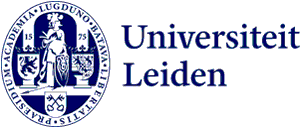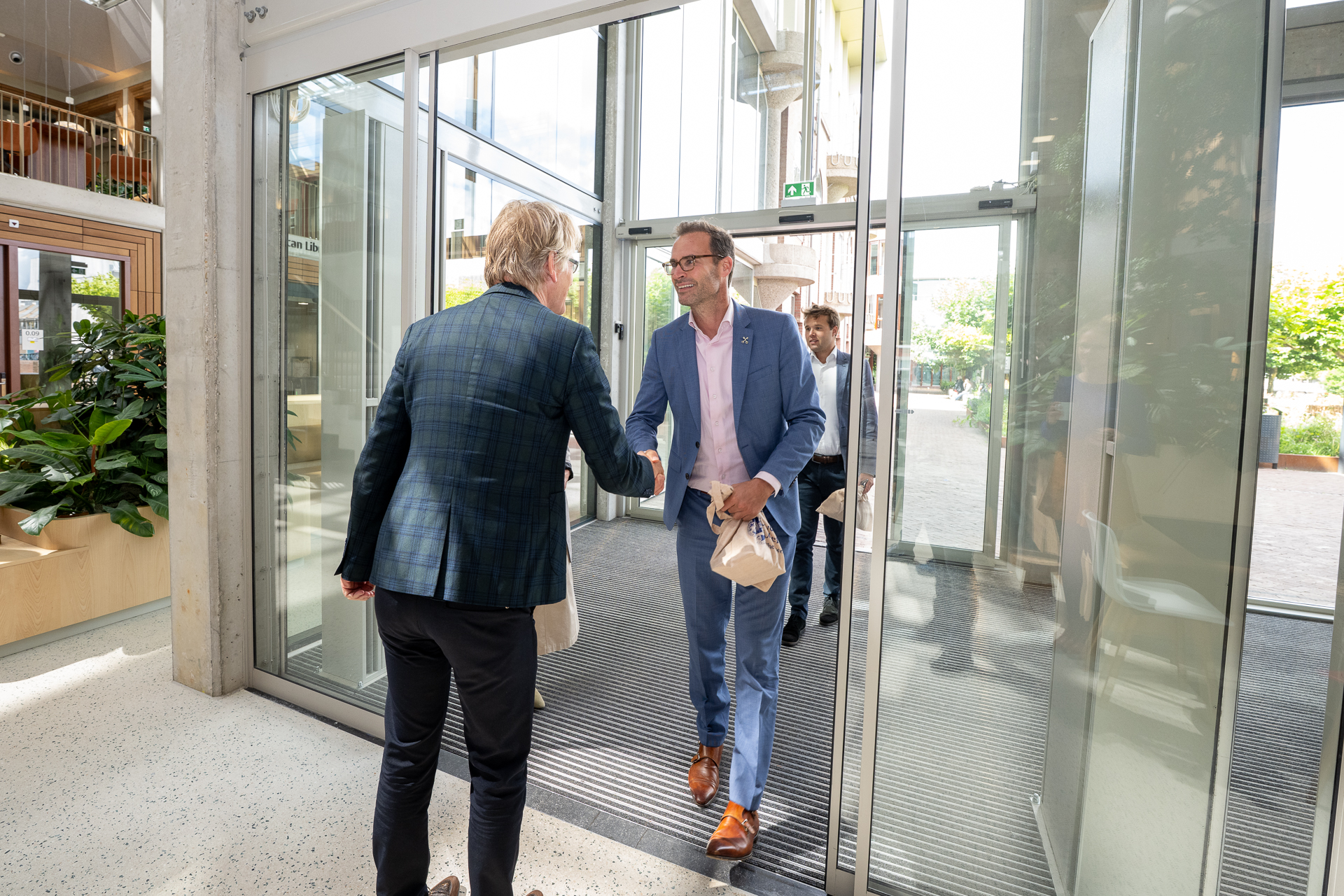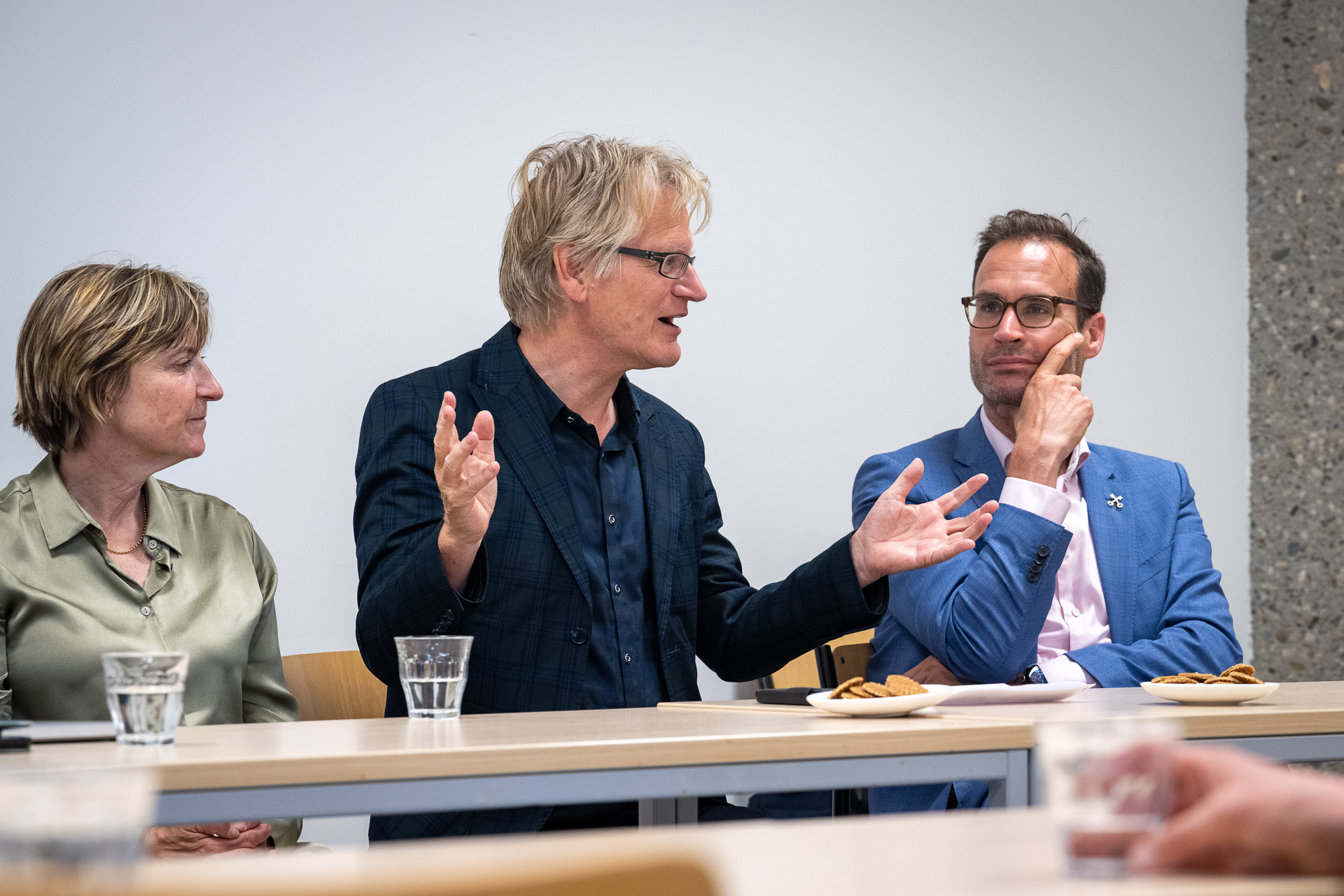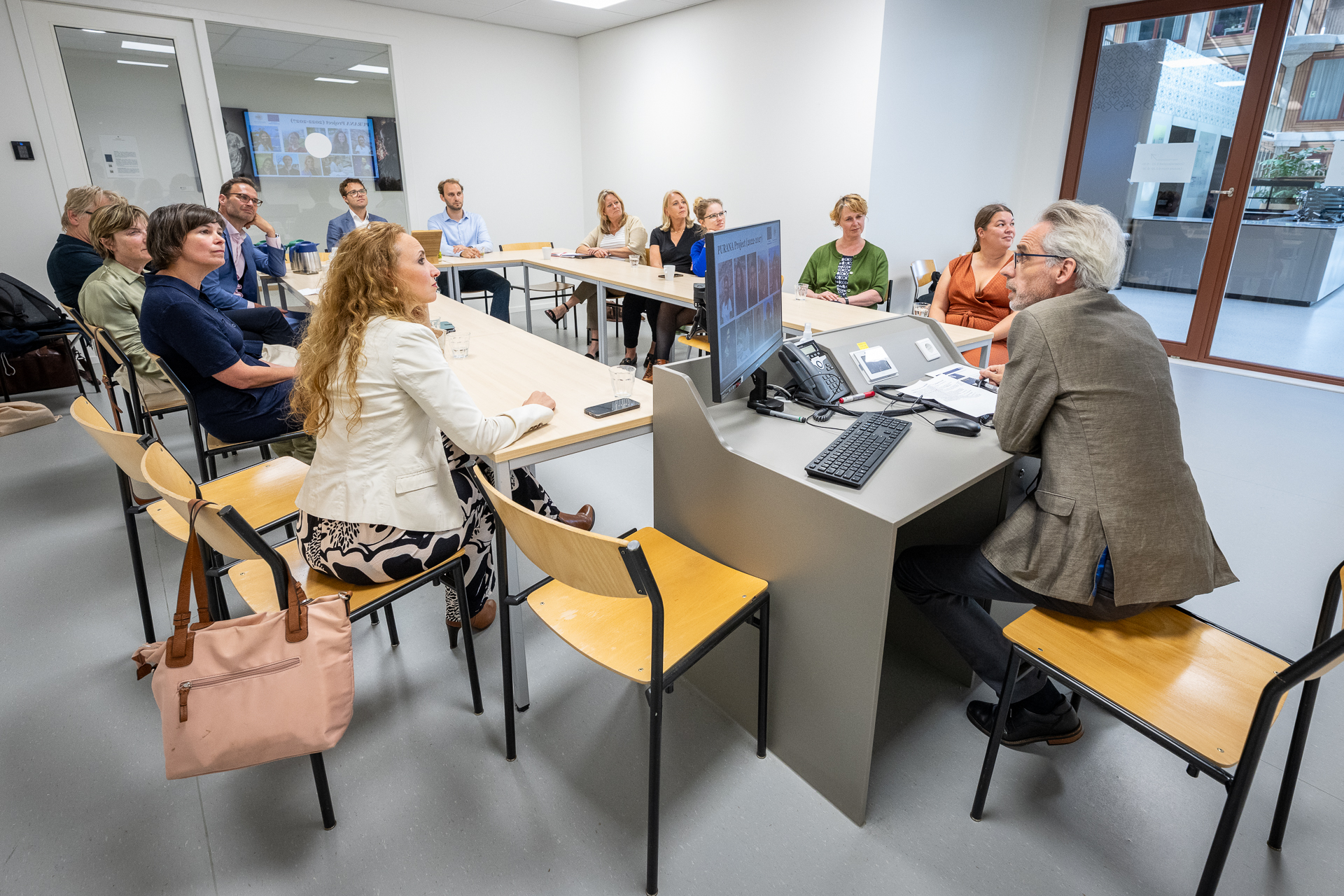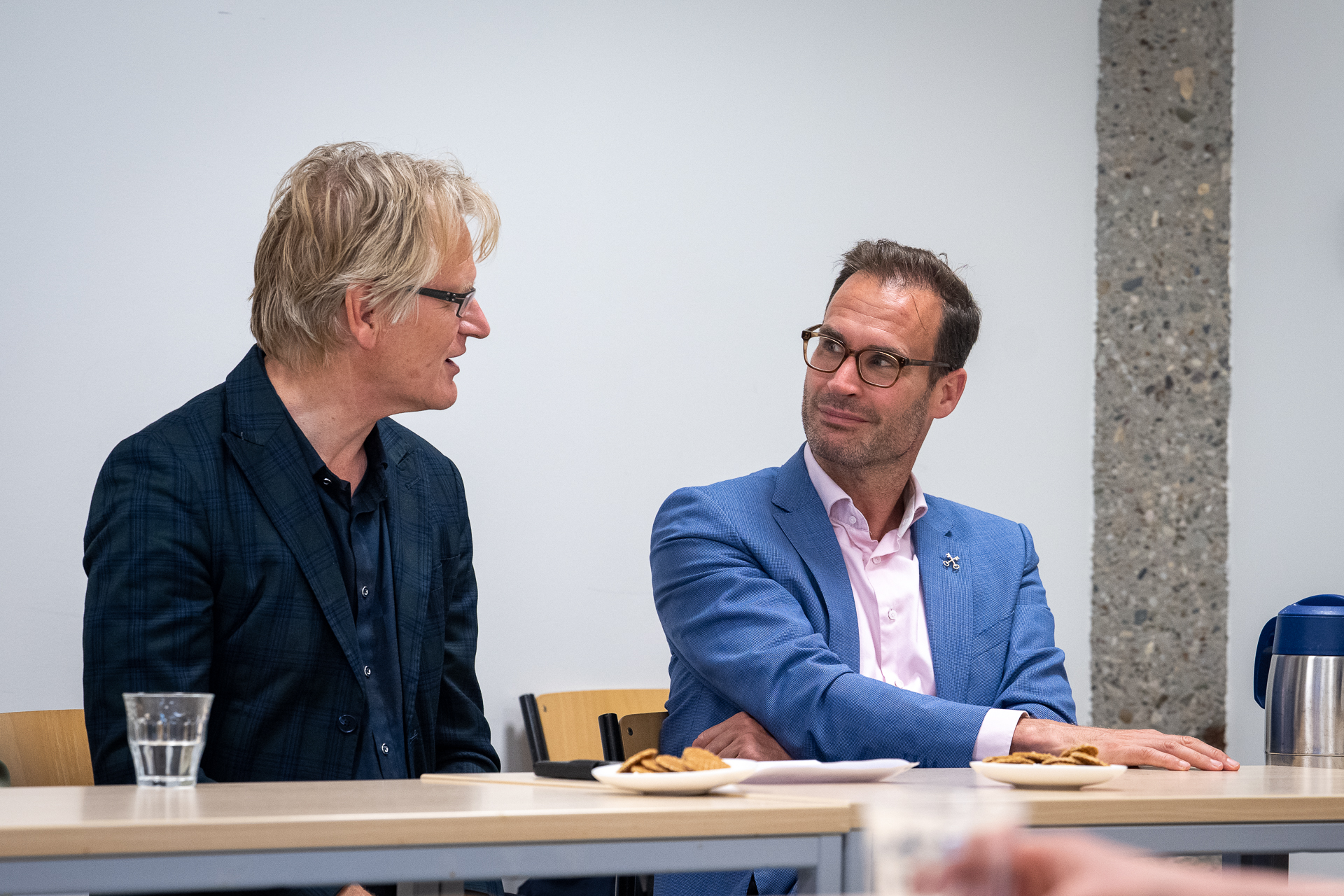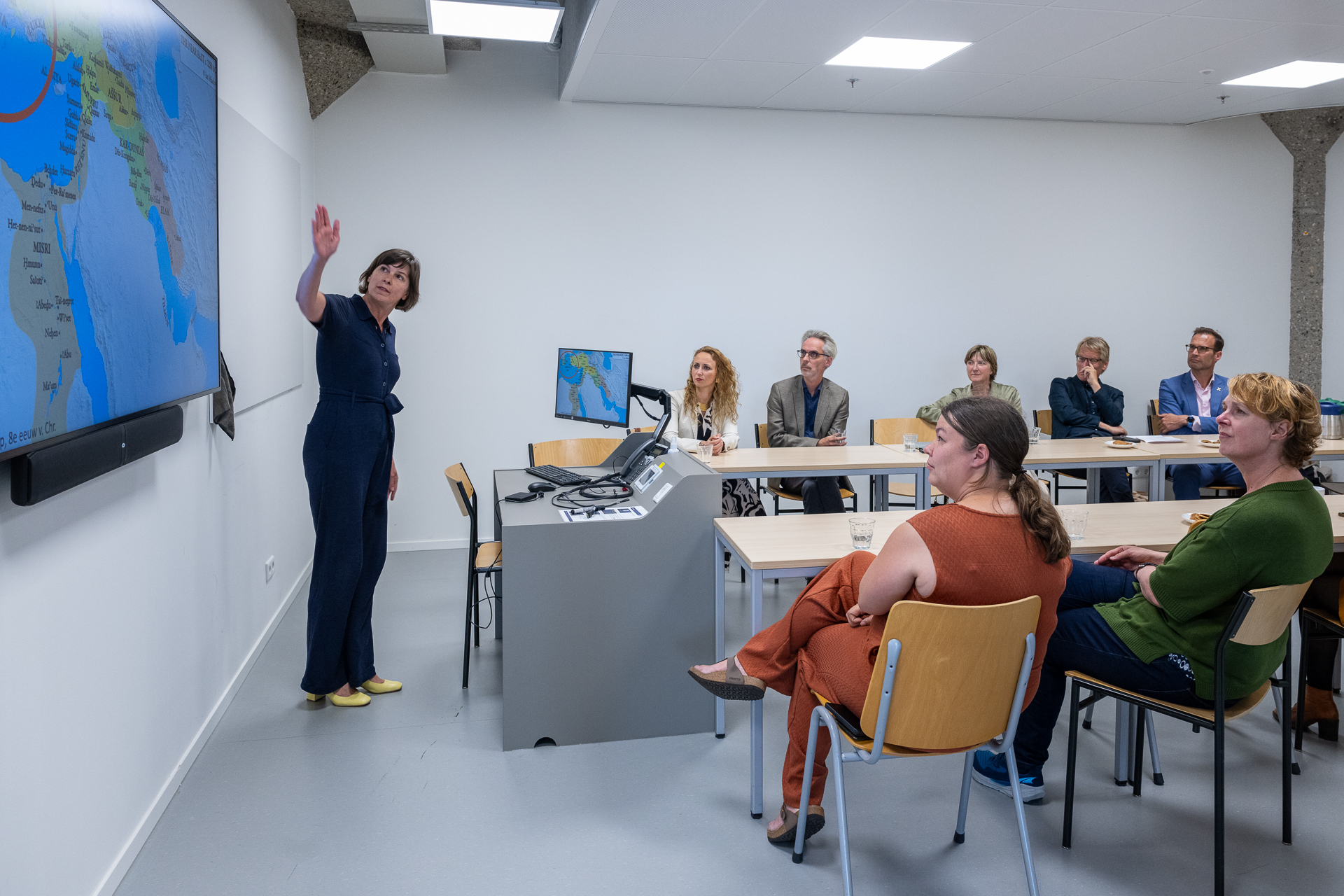
Leiden mayor visits Humanities: ‘The diversity of subjects is fantastic’
Mayor Peter Heijkoop is busy getting to know his city better. On Monday 7 July, he visited the Faculty of Humanities. ‘A few hours and you can see how important this is.’
Heijkoop had a double university programme on Monday. After visiting the Faculty of Law, he cycled to the Herta Mohr Building, where Dean Henk te Velde and President of the Executive Board Annetje Ottow welcomed him for an introduction to the humanities.
Near and Far East
With more than fifty bachelor's and master's programmes, it was impossible to show everything that goes on at the faculty in one afternoon. The mayor was therefore given a brief preview of a number of research areas in a series of presentations. Professor Peter Bisschop explained what Sanskrit means and how it influences Prime Minister Modi's current policy. Associate Professor Willemijn Waal then talked about her hypothesis that the Greek alphabet may be centuries older than we previously thought. This could mean, among other things, that Homer wrote the Iliad and the Odyssey much earlier than was previously thought.
Back to Leiden
After this glimpse into studies of the Far and Near East, it was time for more Leiden-oriented research. University lecturer Carmen van den Bergh explained why Italians are the largest migrant group in Leiden and what the consequences of this are. It turns out that we not only have them to thank for ice cream, but the Bio Science Park also benefits from expats who are building a career in the English-speaking Netherlands.
Associate Professor Alicia Schrikker and Professor Ariadne Schmidt talked about their research into Leiden's history of slavery and how they enable history students to relate their research to ‘ordinary Leiden citizens’. Assistant Professor Miko Flohr is also involved in this ‘public history’. The National Museum of Antiquities is not only closely linked to research on Pompeii, but also offers students the opportunity to do internships while making the collection accessible to a wider audience. The finishing touch was provided by university lecturer Raymond Fagel, who a few days earlier had been awarded a grant for research into 18th-century Leiden residents who left for Spain as guest workers.
Right to exist
The mayor was impressed by the diversity of topics and their close links to current events. His closing statement at the end of the afternoon was: ‘If everyone were to take note of this, there would never again be a question about these programmes’ right to exist.’
